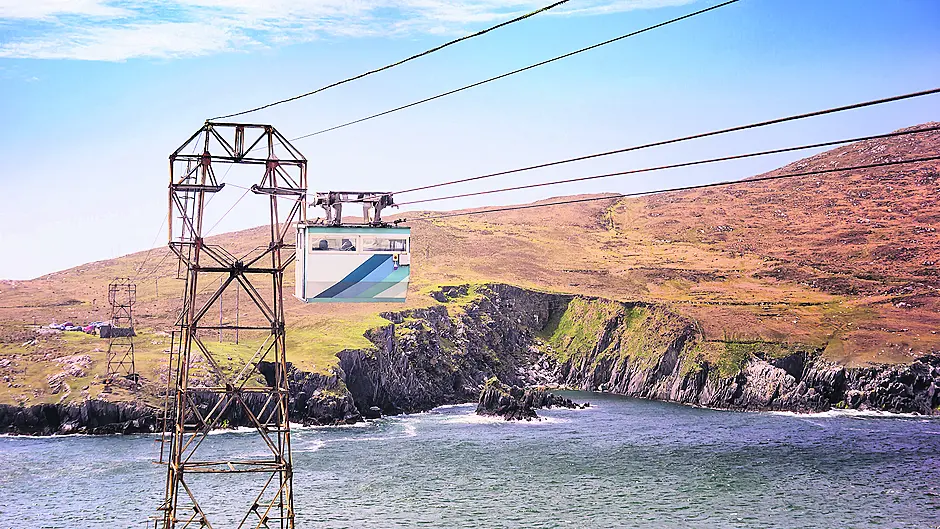DURSEY islanders say Cork County Council is sending them back to the dark ages to use boats to cross a deadly stretch of water. ‘If Dursey was so easy to reach by boat why did they put in the cable car in 1969, when there were 50 residents on the island?’ asked islander Martin Sheehan. ‘The Dursey Sound is one of the most treacherous stretches of water around our coast,’ he added.
Martin Sheehan was audibly angry when he spoke to The Southern Star. ‘Not one of the 19 stakeholders on Dursey have had any correspondence from Cork County Council in relation to the April to November closure of the cable car to replace its two towers. And we’ve heard nothing about the provision of alternative access, such as a ferry, to the island,’ he said.
Referring to a recent Dáil discussion, Mr Sheehan said Patrick O’Donovan, the Minister of State at the Department of Public Expenditure, was appalled that the Council had not consulted with the residents, representative groups, or the Department of Rural Development before making their announcement. ‘This is not how a local authority should carry out its business,’ Deputy O’Donovan stated in the Dáil.
The minister said it would have been ‘preferable to have had engagement, a solution, and an alternative arrangement in place, before Cork County Council announced that the cable car was to close.’
The manner in which this has taken place, he added, is regrettable. ‘Hopefully, with the correct form of engagement with the Department and the local representatives on Cork County Council, a way forward can be found.’
Meanwhile, Martin Sheehan said islanders have been told to use their own boats to access the island. But without passenger licences, he said, the situation is a legal minefield. ‘If anything went wrong the boat owner could be cleaned out of house and home,’ he said.
West Cork TD Michael Collins (Ind) joined in the recent Dáil discussion. He claimed that the Council has not responded to any queries about alternative transport. He said the local authority is telling island dwellers and farmers to use their own boats to access the island and transport cattle.
Deputy Collins insisted that the Council should be providing temporary, alternative transport.
‘All known stakeholders were notified about the temporary closure once the Council confirmed, on the basis of ongoing assessments and advice from the Council’s structural consultants, that it was necessary to pause the service,’ a spokesperson for Cork County Council stated.
Cork County Council does not, the spokesperson added, maintain a database of users of the service but has, over time, compiled a list of persons and businesses who have asked to be included in updates about the service.
This was used to advise the stakeholders and in addition information was also made available in the cable car in order to inform persons who may be using the service, but are not on the contact list.
The Council said it had no option but to close the car for the weeks stated but would try to expedite the work.








